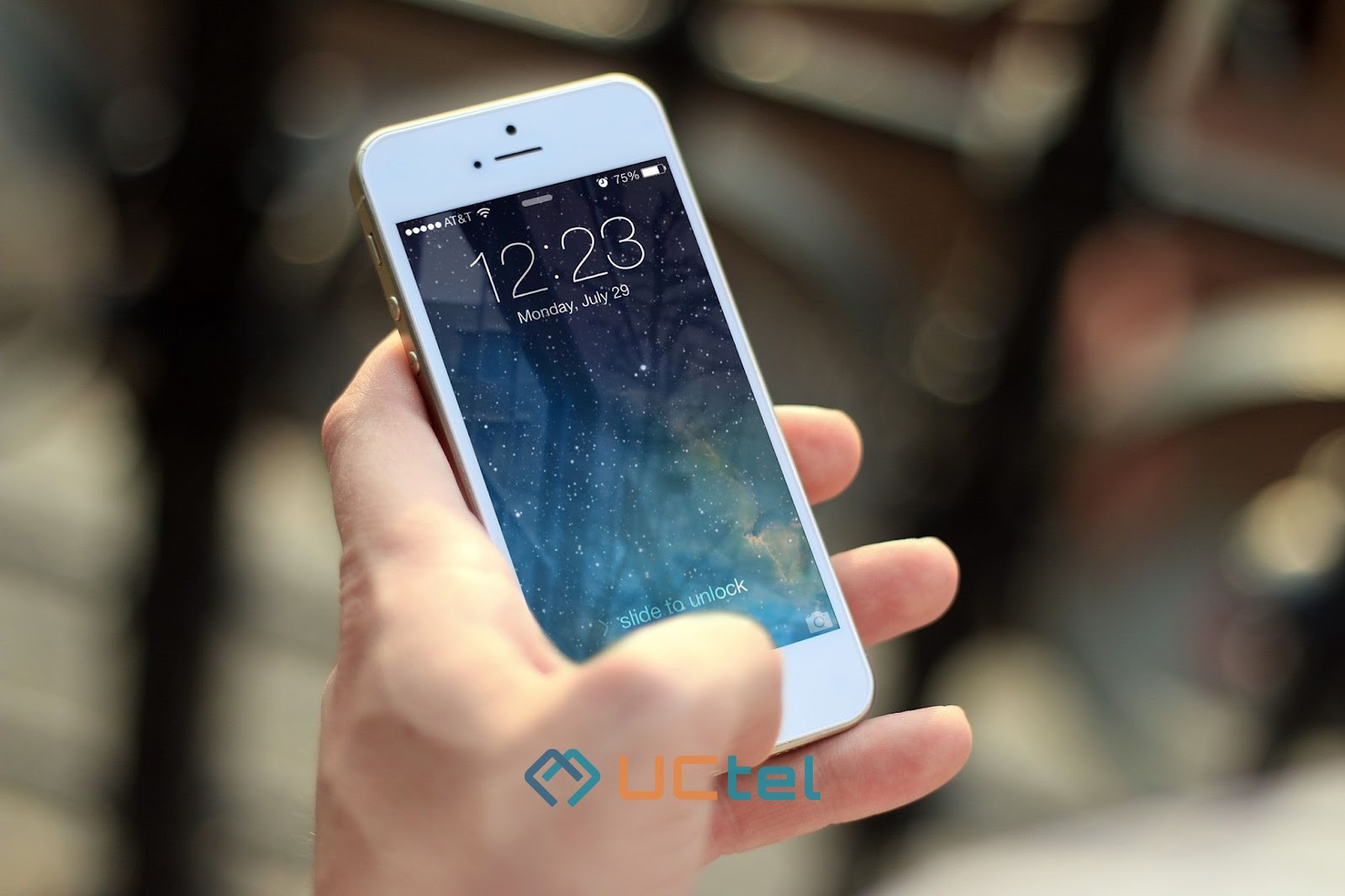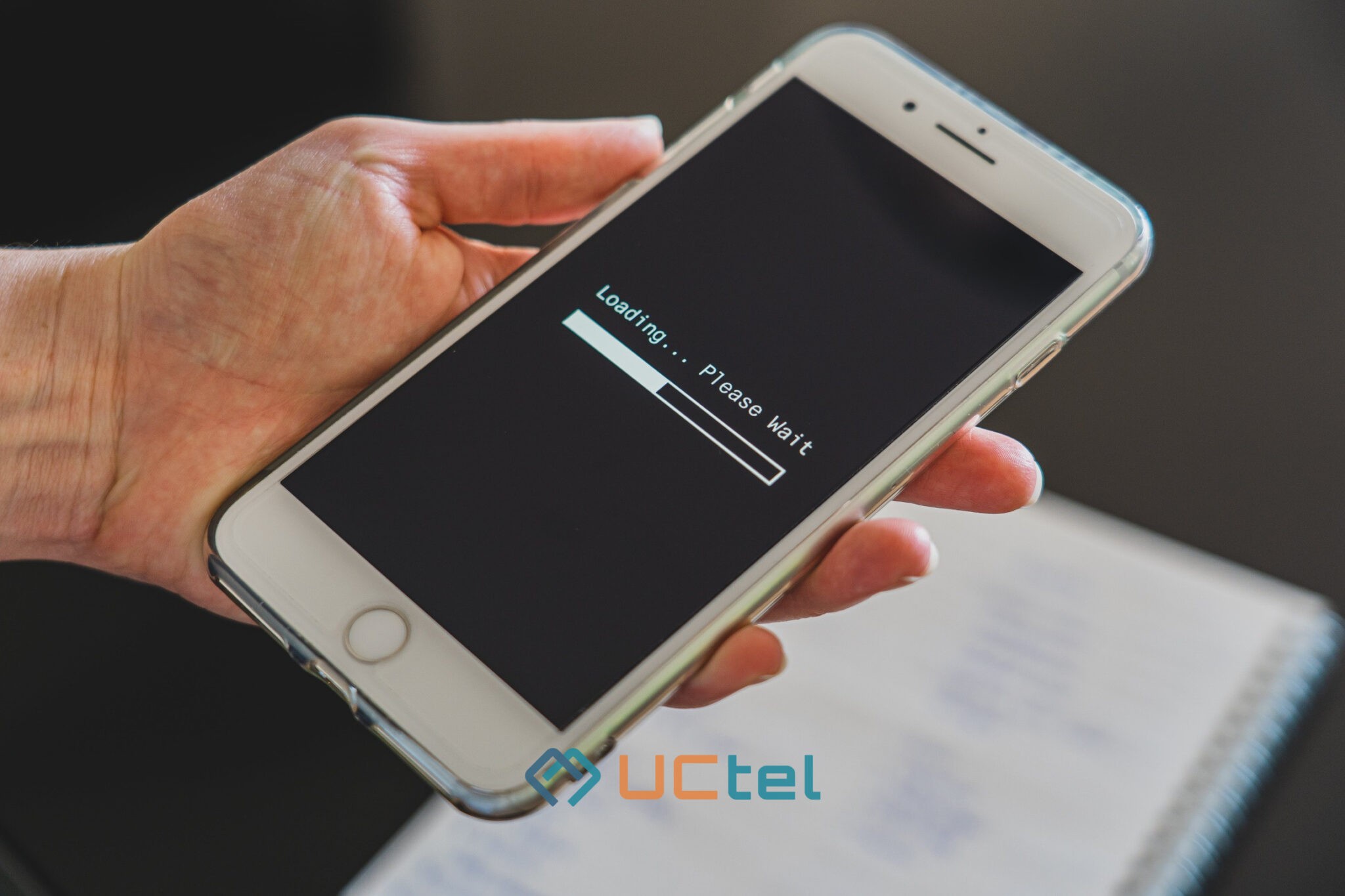How to Check Signal Strength in the Building and Prevent Communication Problems

Table of contents
In a hyper-connected world, mobile signal strength makes a huge difference in ensuring seamless communication and productivity. Still, many people face communication problems due to weak or inconsistent signals, especially inside buildings where walls, electrical devices, and other obstacles interfere with connectivity.
At UCtel, we specialise in helping organisations overcome connectivity challenges. Our team utilises advanced CEL-FI signal boosters and proven methodologies to assess mobile network performance, identify weak spots, and recommend tailored solutions.
In this guide, we’ll break down the ways to check mobile signal strength and improve connectivity in your building. Let’s hit the ground running!
What Makes a Good Mobile Signal Strength?
The best way to test cell coverage in a building is to determine its decibel-milliwatts, or dBm for short. Thus, mobile signals are basically radio waves operating within specific frequencies, where strength can range from -30 dBm (the best) to -120 dBm (almost no signal/dead zones).
Any signal stronger than -107 dBm is considered usable, and it’s rare to find something more potent than -50 dBm in the telco market. Typically, from -115 dBm downwards is useless, as calls would drop, data speed would be painfully slow, texts would take a long time to send, and videos buffer. Around -120 dBm, it is pretty much dead.
Here are signal ranges and what to expect from each:
| Signal Strength (dBm) | Expected Result |
| -50 to -79 | Excellent |
| -80 to -89 | Good |
| -90 to -107 | Average |
| -108 to -114 | Poor |
| < -120 | Dead |
Important: This chart is a benchmark. Every carrier has its own dBm to bars conversion standards.
Factors Influencing Signal Strength
Certain factors can influence the strength of a signal inside a building, which usually include:
- Weather conditions like storms, rain, and fog distort mobile signals.
- Radio frequency interference from wireless technologies such as microwaves, cordless phones, and other appliances reduces signal strength.
- The height of a building, its layout, and building materials like concrete and steel can obstruct signals from reaching devices.
- Being too far from the nearest cell tower will result in far-from-optimal connectivity.
- Increased user volume in office buildings and densely populated areas causes network congestion.
- Physical obstructions and other potential interference sources like trees, other buildings, mountains, etc., block mobile signals.
If you measure the mobile signal strength of a building, and it doesn’t hit the benchmark because of one of the above reasons, you absolutely need a mobile phone signal booster or its alternatives. Boosters eliminate signal dead zones and improve its strength to a level of -100 dBm or higher.
How to Measure Mobile Signal Strength
Simply access your mobile device’s “field test mode” to test phone signal strength in decibel-milliwatts. This can be found in the “About phone” or “Network” settings for Android or by typing in a *#*#4636#*#* code for iPhone. DBms will be represented as RSRP signal strength. But of course, it's more of a DIY method, and you will require professional testers for more precise measurements.
But, whatever you choose to check mobile phone signal strength, it’s crucial to know how to accurately take measurements to reflect the true state of a mobile network in your building. So, here are our best practices for how to check phone signal strength and provide proper in-building mobile signals in new and old commercial properties:
1. Test signal strength at different points in the building
Testing signal strength at different pivotal points in a building is also known as grid testing. Test mobile signal strength for the building, highlighting spots where calls frequently drop and areas where people go to make uninterrupted calls. We recommend walking around the property to note areas where you tend to lose network coverage and map them out.
Taking several dBm readings and then comparing them is one of the most effective methods for how to check signal strength. Consider getting an expert onboard to properly access your building’s coverage loopholes, simulate emergencies, identify the specific culprits causing poor connectivity inside the building, and determine how to fix the problem.
Grid testing is vital for robust mobile coverage in building areas with signal-related issues and interference.
2. Test one network at a time
Wondering why your 4G is so slow while 5G works perfectly? Some networks provide better 4G or 5G coverage in some areas. Therefore, it’s essential to test mobile signal strength across all carriers. Identifying gaps in their coverage is critical, especially in commercial buildings, where there may be more areas with weak signals than strong ones.
3. Forget the bars
The mobile signal bars in the upper right corner of your mobile device are mostly there as a visual representation of a mobile connection. It’s basically the Joe Bloggs of signal strength testing and doesn’t paint the full picture. While bars are an easy point of reference for laymen, they can vary greatly and often depend on the phone manufacturer and carrier network.
Generally, a full bar doesn’t equate to great coverage, and it’s recommended to ignore the bars when you check phone signal strength in office buildings or for your commercial property.
4. Face important key performance metrics
One important KPI to monitor when accessing a building’s signal strength is the radio frequency quality. Many factors like weather, network congestion, and more will affect network quality. From our experience, one of the most common determinants of signal strength is RF interference. Therefore, learning how to perform a phone signal test in a building without spectrum analysis is a waste of time. It involves identifying these RF factors, such as trees, building materials, and other signal degradation sources.
5. Book a professional survey
If you're asking yourself, “How do I test my phone signal?”, DIY testing can indeed provide valuable insights. Yet, a professional mobile signal survey offers a more comprehensive and accurate evaluation of your building’s connectivity landscape. At UCtel, we conduct in-depth surveys to identify and address signal strength issues by:
- Using advanced tools like analysers and spectrum scanners;
- Testing signal strength at multiple points, including hard-to-reach areas;
- Measuring critical metrics like RSRP, SINR, and RSRQ for each carrier;
- Providing a detailed report that highlights signal strength, quality, and coverage gaps throughout your building, along with visual maps and actionable insights.
How to Provide Robust Mobile Signal Strength for Office Buildings
Once you’ve tracked down your building’s signal strength, it’s time to start exploring solutions for providing robust mobile signal strength in office buildings and commercial properties. We'll say this once: all the signal-improving apps, homemade antennas, and other DIY devices are useless when it comes to enhancing your mobile connection. In fact, they can even make it much worse. So, here are your real working options for how to boost a phone signal:
1. Mobile signal boosters
If you want robust solutions, it’s recommended that you seek help from qualified signal-boosting experts like UCtel. We’ll inspect your property and develop a strategic layout for your signal-boosting solution. It's even possible to improve the signal of specific carriers or network types (3G, 4G, and 5G). You can expect the connection to be as good as outside, meaning they’re a good fit for buildings with poor connectivity but good outside coverage.
Take control of your connectivity with UCtel.
2. Private 5G network
5G is the future of wireless connectivity, which is slowly being rolled out in every part of the world. However, you can take matters into your own hands by adopting a private 5G network, which is similar to the public 5G network but allows owners more control over it. This next-gen dedicated private network has wide and deep coverage, low latency, strong security, and is easy to deploy. This is a robust solution for every commercial building, such as hospitals and factories, that rely on fast and reliable networks for smooth operation.
When to Seek Professional Help for Phone Signal Strength Issues
Knowing when to call in experts can save time, effort, and money while ensuring reliable and long-lasting solutions to your connectivity problems inside commercial or residential buildings.
Persistent issues beyond DIY fixes
If you’ve tried repositioning your devices, installing signal boosters yourself, or even moving to areas with fewer obstructions, but the problems persist, this indicates more complex issues, such as poor network infrastructure in your locality or incorrectly configured boosters and repeaters. In this case, professionals can conduct an in-depth analysis of the signal environment, identify root causes, and implement effective solutions tailored to your specific needs.
Need for comprehensive signal surveys
If you wonder how to check signal strength of all available network operators in your area to optimise connectivity inside your building, professional signal surveys provide a detailed assessment of signal strength, interference levels, and dead zones throughout your space. You’ll also get data-driven recommendations for the optimal placement of signal-enhancing equipment.
Complex environments
In commercial, industrial, or large residential buildings, multi-story offices, or facilities with unique layouts, measuring mobile signal strength and achieving its consistency is a challenging task. Specialists have the required knowledge and expertise not only to do precision testing and detect major causes for poor signal but also to design custom solutions that will really help.
When reliable communication is critical
In businesses like healthcare, finance, or customer service, uninterrupted communication is non-negotiable. Professionals ensure accurate signal testing and strong reliability, enabling smooth operations in industries where downtime can have serious consequences.
Consider UCtel as Your Trusted Partner
Need help with how to check mobile signal strength? Our friendly signal experts are at your beck and call. UCtel is a leading provider of mobile boosters and alternative solutions for commercial buildings and large venues. We specialise in user-friendly signal equipment, as well as unique RF systems for mobile, DAS, and private 5G networks.
- Reliable expertise: Our team of professionals brings years of experience and tech knowledge to the table, conducting comprehensive signal surveys and standing at the forefront of industry advancements.
- Tailored solutions: No two buildings are the same, and neither are their connectivity needs. We take a personalised approach to each project, ensuring that our solutions are customised, cost-effective, and scalable.
- Advanced tools and tech: Our team uses state-of-the-art tools to assess and optimise signal strength, ensuring reliable and robust connectivity.
- Proven cross-industry results: We’ve successfully helped multiple clients across residential, industrial, commercial, and public sectors bring indoor mobile connectivity to a new quality level, maintaining smooth operations.
Signal strength is life! Come to us with your tales of poor signals, and we’ll make it right. Say hello or contact us via 0333 344 4417 for a free consultation.
Conclusion
Ensuring a strong mobile signal strength in your building is no longer a luxury; it’s a necessity. Bars are pretty much meaningless, as they don’t really reflect signal strength. Instead, you should focus on professionally testing your building’s signal strength, which is essential for achieving robust coverage. Don’t let poor signal strength disrupt your communication, contact UCtel today for expert assistance and reliable connectivity solutions.






